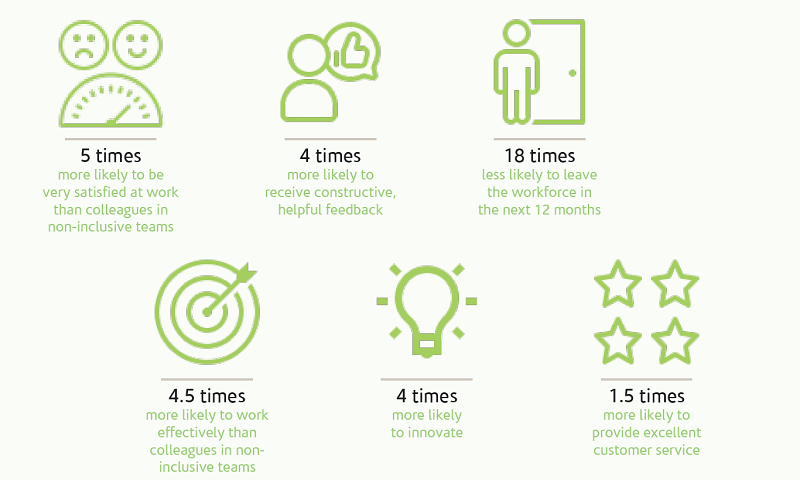Helping Hand achieves Inclusive Employer status from the Diversity Council of Australia
According to the Diversity Council of Australia (DCA) when organisations take action to become an inclusive employer and create a more diverse and inclusive workplace, everyone benefits. Here at Helping Hand we couldn’t agree more.
The DCA is the independent not-for-profit peak body leading diversity and inclusion in the workplace and, every two years, Australian organisations can participate in DCA’s Inclusive Employer Index, which enables them to measure diversity and inclusion in their workforce and compare findings to a National Index Benchmark (derived from a nationally representative survey of 3000 Australian workers).
In October 2022, Helping Hand participated for the first time, with 119 of our staff undertaking the survey.
We’re delighted to announce that we achieved Inclusive Employer status.
To do this, we needed to exceed the national benchmark on at least five out of the six measures in the survey. We exceeded the national benchmark on all six.
These measures included:
– Engagement
– Awareness
– Inclusive Organisation
– Exclusion
– Inclusive Team
– Inclusive Leadership
Our participation in the survey has provided us with some excellent insight into the diversity of the Helping Hand team.
How staff perceive our levels of inclusivity
Most significantly, 60% of Helping Hand employees report having an inclusive manager, compared to the Australian workforce average of 31%. An inclusive manager is deemed to be one who values differences, seeks out and uses a diversity of ideas, treats everyone fairly, and deals with inappropriate behaviour. The percentage of our staff with inclusive managers that answered always to the statements about effectiveness, innovation, customer service and effort far outstripped those without.
In addition, 56% of Helping Hand employees report being in inclusive teams, compared to the Australian workforce average of 49%. An inclusive team being one where a diversity of people (e.g., from different ages, cultural backgrounds, genders, etc) feel they are respected and valued team members, who can be themselves, and to contribute and progress at work.
55% of Helping Hand employees report that we have an inclusive organisational climate, compared to the Australian workforce average of 40%. An inclusive organisational climate is one that has an inclusive culture where diversity is valued, employees can trust the organisation to treat them fairly, and the top leaders demonstrate visible commitment to diversity and inclusion.
How inclusivity benefits staff performance
The results clearly show the impact (and difference) on staff performance working in inclusive and non-inclusive teams.
It was determined that our employees in inclusive teams are:

The results also identify that working in an inclusive team reduces the risk of discrimination and harassment in the workplace. Consequently, not only are we proud to have achieved this status, but we are also determined to uphold these standards of inclusivity so we can maintain the immeasurable benefit they bring to our staff, and our clients in turn.
As our Chief Executive Officer, Chris Stewart, explained:
“Processes like this provide an opportunity for organisations to hold a mirror up to themselves, and it can be vulnerable to place ourselves in these situations. But it’s only through transparency and values-based engagement that you can allow yourselves the opportunity to see how you are tracking in these very important areas. For us, we are delighted in the positive result. However, we know we can always do more, and we are committed to working even harder when it comes to diversity, inclusion and belonging.”
We give our heartfelt thanks to the staff who participated in the survey on our behalf.
Return to News
